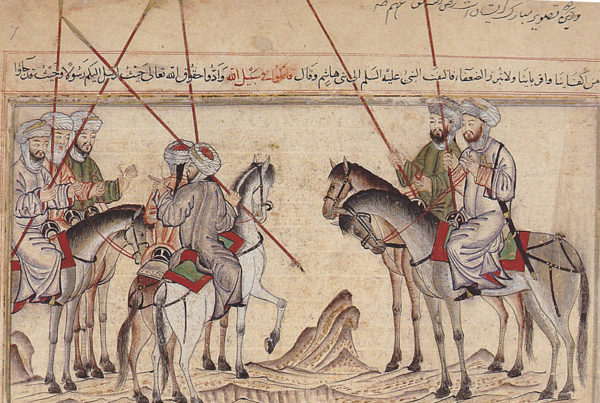Reading the Quran and the Hadith which influence interpretations of Islam can be a difficult exercise – and not enough Westerners have attempted this. If they did, lines like ‘Islam is a religion of peace and tolerance’ might be repeated far less often. Likewise, too many of us believe that the Crusades of the Middle Ages were a one-sided assault on a peaceful civilization which was superior to that of Europe at the time. Many Muslims claim that the Crusades are a justification for today’s Jihadis.
Robert Spencer’s The Politically Incorrect Guide to Islam (and the Crusades) is a slender work, it is cheeky, skimpy in the details, and very useful all the same. For a start, Mohammed wasn’t really into peace and tolerance – instead, he ordered assassinations, violated treaties, mocked the mutilated bodies of dead opponents, commanded his followers to stage massacres, loot caravans and bring him a share. Spencer quotes Mohammed himself in the Quran and the Hadith on these points.
Islam is a religion of war and those who compare it to Christianity and Judaism need to read Spencer’s book. Christianity has been accompanied by violence – in direct contradiction to Christ’s example and teachings. Islam doesn’t have the same restraints. In the Old Testament, the Jews did engage in wars, but Spencer points out their opponents are precisely identified by specific tribes, whereas Islam has an impulse within it towards world domination.
Spenser also points out that the Golden Age of Islam (the 8-11th Centuries) was not so much a product of Islam itself as it reflects the civilizing of Arab conquerors by those they had conquered in the name of Islam. Moreover, the reassertion of Islamic values in subsequent centuries brought this era to an end even as the first Crusaders showed up. In the chronicles of the Crusades, there is manifold atrocity and betrayal – by all sides. Moreover, Spenser reminds readers that the Crusades were one chapter in 14 Centuries of warfare between Islam and the West; a war that has entered a new stage in its ongoing history.
Those of us who don’t understand what are meant by words like ‘Dhimmi’, ‘jizya’, ‘kitman’ and ‘taqiyya’ would be highly advised to find out… sooner rather than later. Spenser’s book would be a good place to start before embarking on more detailed reading elsewhere.








